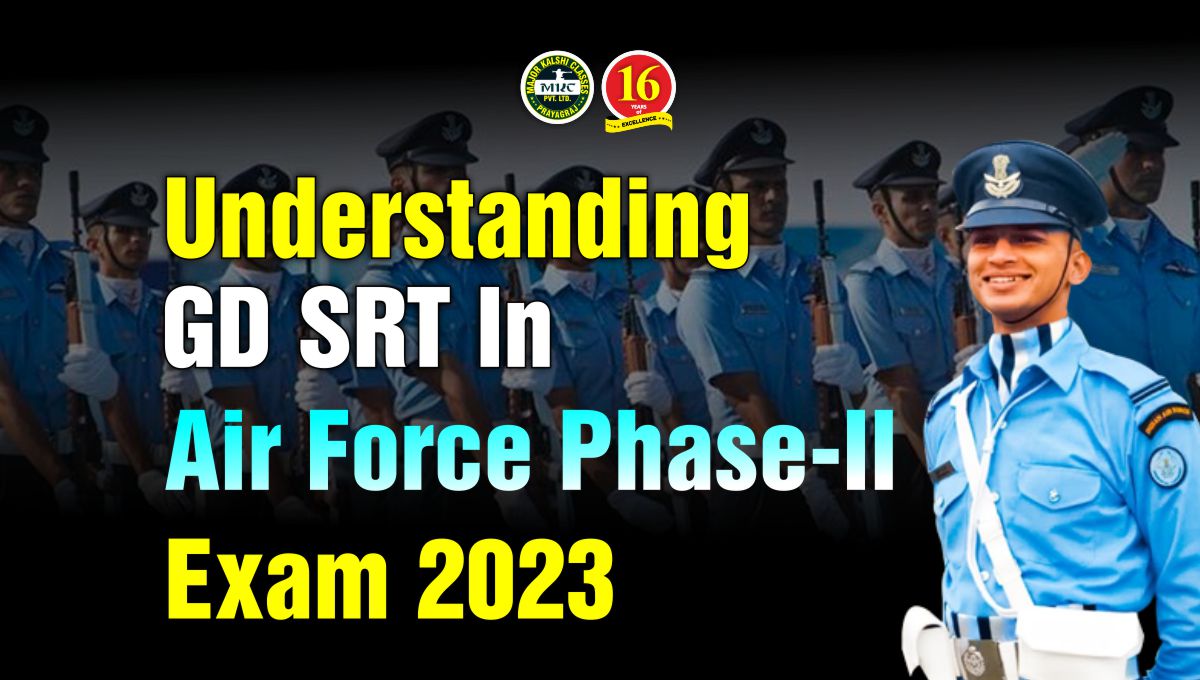Understanding GD SRT in Air Force Phase-II Exam 2023
The Indian Air Force conducts a rigorous selection process to identify capable individuals who can serve with distinction. Among the various components of the Phase-II Exam, the GD SRT (Group Discussion and Situation Reaction Test) holds significant importance. This article aims to provide a comprehensive understanding of GD SRT in Air Force Phase-II and its role in the Air Force selection process.
What is GD SRT in Air Force Phase-II?
GD SRT, which stands for Group Discussion and Situation Reaction Test, is a crucial part of the Phase-II Exam conducted by the Indian Air Force. It is designed to assess a candidate’s ability to work effectively in a group setting and analyze their responses to real-life situations.
Group Discussion (GD):
During the Group Discussion, candidates are divided into small groups and given a specific topic or case study to discuss. The objective is to evaluate their communication skills, leadership qualities, teamwork, logical reasoning, and the ability to express opinions effectively. Candidates are expected to present their views, engage in a healthy discussion, listen actively to others, and contribute constructively to the group’s decision-making process.
Situation Reaction Test (SRT):
The Situation Reaction Test is aimed at assessing a candidate’s response to different situations, typically encountered in real-life scenarios. Candidates are presented with a series of situations or practical problems and are required to provide their immediate reactions or responses within a specified time frame. The test evaluates their decision-making skills, problem-solving abilities, adaptability, emotional intelligence, and the ability to handle stress and pressure.
Key Skills Assessed in GD SRT:
- Communication Skills: The ability to articulate thoughts clearly, listen attentively, and effectively express ideas and opinions.
- Leadership and Teamwork: Demonstrating leadership qualities, ability to work collaboratively with others, and maintaining a harmonious group dynamic.
- Analytical Thinking: The capability to analyze situations, identify key issues, and provide logical and practical solutions.
- Decision-making: Assessing the available information, weighing pros and cons, and making well-reasoned decisions within a limited time frame.
- Problem-solving: Applying critical thinking to identify and solve problems efficiently and effectively.
- Emotional Intelligence: Demonstrating self-awareness, empathy, and the ability to manage emotions in challenging situations.
- Time Management: Responding promptly and effectively to each situation within the given time limit.
Preparation Tips for GD SRT:
- Stay Informed: Enhance your general awareness and knowledge of current affairs, social issues, and technological advancements.
- Practice Group Discussions: Engage in group discussions with peers on various topics to improve your communication and listening skills.
- Enhance Decision-making Skills: Practice solving case studies, participate in mock scenarios, and develop logical thinking abilities.
- Build Emotional Intelligence: Work on understanding and managing emotions, empathy, and effective interpersonal skills.
- Stay Calm and Confident: Develop stress management techniques and maintain a composed and confident demeanor during the GD SRT.
GD SRT in the Air Force Phase-II Exam plays a vital role in evaluating a candidate’s interpersonal skills, leadership qualities, decision-making abilities, and adaptability to real-life situations. By understanding the objectives and key skills assessed in GD SRT, candidates can better prepare themselves for this crucial aspect of the selection process. With adequate preparation and practice, aspiring Air Force personnel can enhance their chances of success and showcase their potential to serve the nation with honor and distinction.








